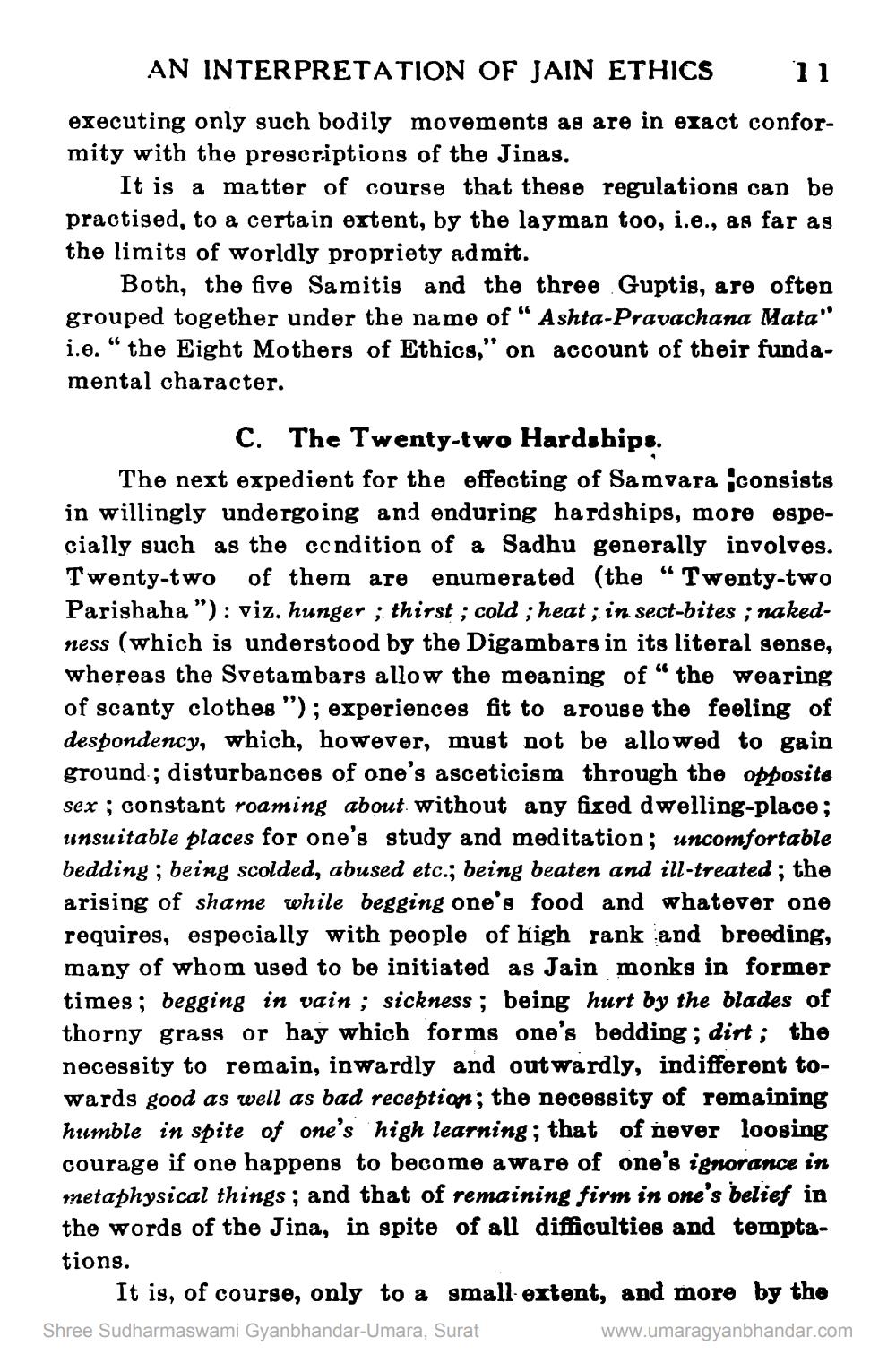________________
AN INTERPRETATION OF JAIN ETHICS 11 executing only such bodily movements as are in exact conformity with the prescriptions of the Jinas.
It is a matter of course that these regulations can be practised, to a certain extent, by the layman too, i.e., as far as the limits of worldly propriety admit.
Both, the five Samitis and the three Guptis, are often grouped together under the name of " Ashta-Pravachana Mata" i.e." the Eight Mothers of Ethics," on account of their fundamental character.
C. The Twenty-two Hardships. The next expedient for the effecting of Samvara consists in willingly undergoing and enduring hardships, more especially such as the condition of a Sadhu generally involves. Twenty-two of them are enumerated (the “Twenty-two Parishaha"): viz. hunger ; thirst ; cold; heat; in sect-bites ; nakedness (which is understood by the Digambars in its literal sense, whereas the Svetambars allow the meaning of "the wearing of scanty clothes "); experiences fit to arouse the feeling of despondency, which, however, must not be allowed to gain ground; disturbances of one's asceticism through the opposite sex ; constant roaming about without any fixed dwelling-place; unsuitable places for one's study and meditation; uncomfortable bedding; being scolded, abused etc.; being beaten and ill-treated; the arising of shame while begging one's food and whatever one requires, especially with people of high rank and breeding, many of whom used to be initiated as Jain monks in former times; begging in vain ; sickness; being hurt by the blades of thorny grass or hay which forms one's bedding ; dirt; the necessity to remain, inwardly and outwardly, indifferent towards good as well as bad reception; the necessity of remaining humble in spite of one's high learning; that of never loosing courage if one happens to become aware of one's ignorance in metaphysical things; and that of remaining firm in one's belief in the words of the Jina, in spite of all difficulties and temptations.
It is, of course, only to a small extent, and more by the Shree Sudharmaswami Gyanbhandar-Umara, Surat
www.umaragyanbhandar.com




